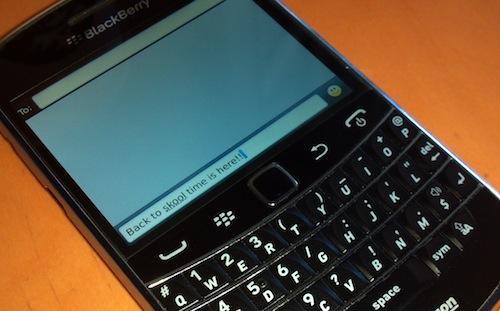
School has either started or is in the process of starting for most, so it's time to take a gander at the smartphones available on the market. It's hard enough to choose a phone as it is, but this year brings dual-core, high-end touchscreen phones that do everything but make your bed and auto-email your professors after a long night out. They're awesome devices, but in many cases, they sacrifice battery life and other features that could be very important to students.
Be it for note-taking, text messaging the girlfriend, or browsing the web while studying in the library, here are some smartphones that I'd recommend for the busy student:
- Buy this if: You want a powerhouse phone with a dual-core processor, kickstand, and a bunch of cool media features.
- Don't buy this if: Pixelation bothers you, because the PenTile display shows it more than competing high-resolution displays.
- Buyer beware: Sprint's 3G data speeds have been incredibly slow as of late; if you're not in a 4G coverage area, you'll notice the data speed difference in comparison to Verizon, AT&T, and T-Mobile.
- Pleasant surprise: The wireless radio (reception) is the best I've ever worked with on Sprint.
- Dark secret: The PHOTON 4G has global roaming capabilities, so you can use it while on Spring break in Europe.
- Alternatives: Motorola DROID X2 (Verizon), HTC EVO 3D (Sprint).
- Buy this if: You're going to be sending a lot of text messages, emails, or taking notes; the keyboard on the Bold 9930 is one of the best I've used in some time.
- Don't buy this if: You're used to a big touchscreen; the 2.8-inch display on the Bold makes it hard to pinch, zoom, and flick.
- Buyer beware: Thanks to the lack of autofocus, the 5-megapixel camera is terrible unless you're taking a picture in daylight with sufficient distance between you and the subject.
- Pleasant surprise: Web browsing is a night-and-day difference from past BlackBerry products, and the phone is incredibly fast.
- Dark secret: Bold's toting a 1,230 mAh battery - a decrease from past models - so battery life isn't the best.
- Alternatives: Motorola DROID 3 (Verizon), BlackBerry Torch 9810 (AT&T).
- Buy this if: You want an Android phone wrapped in a gorgeous frame with dual-core processing power.
- Don't buy this if: You want the authentic Android experience, since the Sensation 4G is highly customized.
- Buyer beware: Despite the dual-core CPU, the Sensation 4G lags from time to time.
- Pleasant surprise: HTC's Sense UI is the best of the best when it comes to Android interfaces.
- Dark secret: Battery life is pretty rough thanks to widget-heavy homescreens and the custom UI.
- Alternatives: T-Mobile (LG) G2x, HTC EVO 3D (Sprint).
- Buy this if: You're going to school in a city that offers 4G LTE connectivity and you want the latest and greatest tech from Verizon.
- Don't buy this if: You want a thin phone, because it's a brick.
- Buyer beware: Thanks to a single-core processor, the DROID Charge can be sluggish at times.
- Pleasant surprise: The Super AMOLED Plus display is beautiful.
- Dark secret: Verizon's 4G LTE suffers from a connectivity issue where it powers on and off repeatedly when connected as a Mobile Hotspot.
- Alternatives: HTC ThunderBolt (Verizon), LG Revolution (Verizon).
- Buy this if: You're after a gorgeous device with a ton of apps available.
- Don't buy this if: You're prone to dropping things; the iPhone 4 is extremely fragile.
- Buyer beware: The iPhone 4 is on the verge of being replaced, so those that like the latest and greatest will want to wait or look elsewhere.
- Pleasant surprise: Battery life is surprisingly good, and the ecosystem around iTunes and the App Store makes it a strong contender for students.
- Dark secret: For a 5-megapixel camera, the iPhone 4 takes a darn good picture.
- Alternatives: Motorola Atrix 4G (AT&T), T-Mobile (LG) G2x, HTC Sensation 4G (T-Mobile), Motorola DROID 3 (Verizon).
